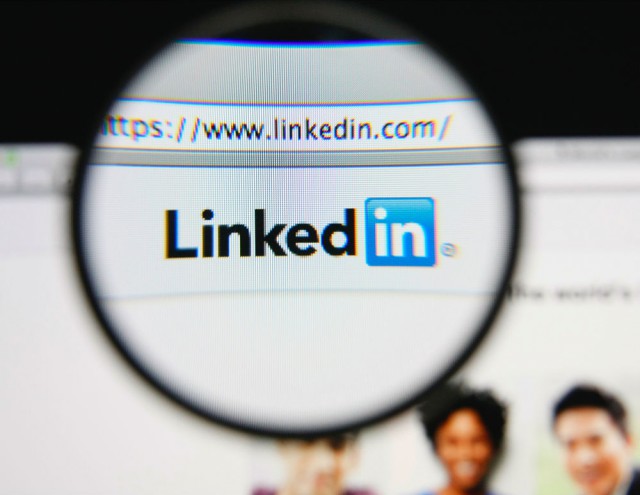
Internet Explorer Developer Channel adds GamePad, WebDriver support
Microsoft has unveiled Internet Explorer Developer Channel, a special preview version of the browser which includes upcoming developer-oriented features and extended standards support.
One major highlight of this release is that it’s packaged as an App-V application, which means it runs in a virtualized environment and won’t affect your existing Windows or Internet Explorer setup at all. There are none of the usual dangers of installing an unfinished IE build. You can run Internet Explorer Developer Channel alongside IE11 without any conflicts, and uninstall it cleanly at any time.

Flipora updates its discovery engine and this time it’s personal
Relying on search engines or social networks to discover things you're interested in on the net can be a bit hit and miss. The things you see on your Facebook feed for example are influenced by your friends' interests as well as your own.
Flipora aims to change the process of following your interests online by using artificial intelligence to make recommendations related to the things you really want to see.

Ramp up the resolution: Google and Bing can now use more detailed imagery on maps
If you have ever bemoaned the fact that maps are too blurry on Bing, too grainy on Google, moan no more! US restrictions on the quality of satellite imagery that can be used by online services such as these has been lifted by the US government.
The ban is to be removed after satellite photography firm DigitalGlobe made an appeal to the US Department of Commerce. Security concerns meant that satellite images were limited to a 50cm resolution, but this is to be boosted to 40cm and beyond.

LinkedIn to face lawsuit for spamming users' email address books
A judge in the Northern District of California has paved the way for a lawsuit against the social network LinkedIn for violating the privacy of its users. The complaint was that LinkedIn "violated several state and federal laws by harvesting email addresses from the contact lists of email accounts associated with Plaintiffs’ LinkedIn accounts and by sending repeated invitations to join LinkedIn to the harvested email addresses". It relates to the fact that LinkedIn not only used the address books of those signing up for accounts to tout for business by sending out an email to that effect, but also sent follow-up email if there was no response.
US district judge Lucy Koh ruled that while users granted permission for LinkedIn to access their contact list it is this 'spamming' that is likely to land the company in court again. The judge outlined the process users were complaining about, explaining that LinkedIn sent an email to connected in users' address books -- albeit with initial permission -- sends the same email a week later if the recipient has not joined LinkedIn, and a third email if another week passes without a signup.

Banish annoying 'allow fullscreen' messages in Google Chrome
You know those annoying messages that say "Press ESC at any time to exit fullscreen. Allow fullscreen?" Here's how to never, ever see those again.
To stop the messages, simply head to Google Chrome's "content settings" section of the settings tab, scroll down to Fullscreen and click "Manage exceptions". Or you can just copy chrome://settings/contentExceptions#fullscreen into your address bar, if you don't want to go rummaging through all the confusing settings.
Firefox 30 adds new Sidebar button, GStreamer 1.0 support for Linux
Mozilla has released Firefox 30.0 FINAL for desktop, with Firefox for Android 30.0 also imminent.
Despite the landmark version number, Firefox 30 is a relatively minor release -- particularly on the desktop version -- with little in the way of new features for end users.

Pale Moon overhauls rendering engine, adds animated panorama support
Moonchild Productions has released a relatively major update to its Firefox browser variant for Windows with the release of Pale Moon 24.6 and Pale Moon x64 24.6.
Version 24.6 comes with a major overhaul of the graphics rendering engine to boost stability, plus a number of important fixes, including all latest security fixes. It also adds support for animated personas.

Queen's speech proposes life sentences for cyber criminals in the UK
Edward Snowden is on the run, living in exile as a means to evade the long arm of US law. The United States seems keen to have him prosecuted for leaking documents that have arguably put national security at risk. He acted in good faith, but has been branded a cyber criminal. Today in the UK, the Queen gave her annual speech -- well, it's really a speech written by the government, but dear Liz reads it out so she gets to call it hers -- and she revealed that cyber criminals could face life sentences for their endeavors, and that existing punishments for digital crimes cold become harsher.
Singled out for particular attention are those "cyberattacks which result in loss of life, serious illness or injury or serious damage to national security, or a significant risk thereof". Those committing such acts could be put behind bars for life. But the proposals do not end there. The aging Computer Misuse Act could be updated, so that criminals that cause "a significant risk of severe economic or environmental damage or social disruption" incur a 14 year term compared to the current 10.

Netflix brings HTML5 video to OS X Yosemite
WWDC has proven to be the big event this week, introducing the latest iteration of Apple's operating system, known as OS X Yosemite -- yes the company has moved on from big cats, it did so with Mavericks.
One of the first to take advantage of this new platform is Netflix. The streaming video service is announcing it will bring HTML5 to Safari in the new operating system. "We're excited to announce that Netflix streaming in HTML5 video is now available in Safari on OS X Yosemite! We've been working closely with Apple to implement the Premium Video Extensions in Safari, which allow playback of premium video content in the browser without the use of plugins", says Netflix.

Dirty desktops and titillating tablets -- the browsers you use to get a porn fix
Porn has always been big business, and online porn accounts for a staggering proportion of web traffic. The availability of always-on internet connections in the home, and near blanket use of internet-enabled mobile phones and tablets, means that it is now easier than ever to get a porn fix if you feel the urge. But have you ever wondered how all of this porn is being accessed? Well… wonder no more! Porn site (you don’t say!) PornHub conducted research after Gizmodo expressed an interest in seeing which browsers were most used by consumers of porn, and the figures make for interesting reading.
It perhaps comes as no surprise that desktop browsers prove the most popular. Some 51 percent of Pornhub's traffic comes from people using desktop computers. But, without wanting to put too many unpleasant images in your head, this leaves 49 percent of porn perusal that is enjoyed on mobile phones and tablets. You know, those devices that are easily transported to a quiet room and are rather easier to hold in one hand than a laptop...

Google offers End-To-End encryption with new alpha Chrome extension
Today, Google took the wraps off a new security tool for Chrome users. Currently available as an alpha release, End-To-End is an extension for Google's browser that offers... well... end-to-end encryption for data arriving in and departing from Chrome. As this is only an alpha version, the extension is not currently available in the Chrome Web Store, but Google has made the code available so the privacy-conscious and security-minded can take it for a test drive.
Based on OpenPGP and a newly developed, JavaScript-based crypto library, End-to-End can be used to encrypt, decrypt, digitally sign, and verify signed messages. Google is keen to receive feedback -- discover a problem and you could cash in, thanks to the Vulnerability Reward Program. In a post on the Google Online Security Blog, Stephan Somogyi, Product Manager, Security and Privacy explains that "we recognize that this sort of encryption will probably only be used for very sensitive messages or by those who need added protection. But we hope that the End-To-End extension will make it quicker and easier for people to get that extra layer of security should they need it".

Google Chrome ships early versions for Windows 64-bit, promises better speed, stability and security
In a move that could -- and maybe should -- have happened years ago, Google has finally released native 64-bit Windows builds into the Chrome release channel. While not yet available to stable or beta channel users, those wishing to take full advantage of their 64-bit processors can do so with the release of Google Chrome 37 Dev and Google Chrome Canary 37.
The 64-bit builds -- according to Google -- hit the spot with its three "core principles": speed, security and stability.

Opera Coast: A new way of interacting with the internet [Q&A]
Coast, from Norwegian developer Opera, is a browser designed specifically for iPhones and iPads. Unlike other browsers it’s been built for simplicity. Instead of buttons, the app uses swipes for navigation. Gestures have replaced the typical functions. Despite this ease, Coast offers most of the features you could want, including a powerful, intuitive search and address bar that suggests keywords and site thumbnails as you type.
I spoke to Coast's creator, Huib Kleinhout, about the browser and his plans for the future.

Chrome takes another step towards protecting users with new malware measures
Google's Chrome web browser has been actively attempting to protect its users since inception, which is a tall order given today's climate. While blocking certain things is easy, protecting customers from their own mistakes is much more difficult.
Now the company is announcing a new way to do exactly that, letting it be known that users will no longer be able to install extensions from any location other than the approved Web Store. "From now on, to protect Windows users from an attack, extensions can be installed only if they're hosted on the Chrome Web Store. With this change, extensions that were previously installed may be automatically disabled and cannot be re-enabled or re-installed until they're hosted in the Chrome Web Store", says Eric Kay, an engineering director with the search giant.

Facebook listens to feedback and tightens up privacy settings -- a bit
Privacy. It's something that we're all concerned about, particularly online. Facebook is one of many companies that comes in for scrutiny and criticism for the way it handles user privacy, and there have long been complaints about the fact that statuses and uploaded photos are made publicly accessible by default. Today that changes. After years of pestering, Facebook has listened to its user base and changed the default visibility setting to "Friends only". At least this is the case for brand new users.
Anyone signing up for a new Facebook account -- can there be many people left who do not yet have one? -- will be able to avoid accidentally sharing private photos with the world. "Going forward, when new people join Facebook, the default audience of their first post will be set to Friends. Previously, for most people, it was set to Public," says Facebook in a blog post. The first time a post is made, users will be asked whether it should be made public or limited to a smaller audience. If no selection is made, it will default to Friends.
